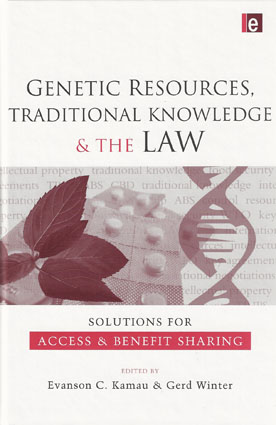
The need to regulate access to genetic resources and ensure a fair and equitable sharing of any resulting benefits was at the core of the development of the Convention on Biological Diversity (CBD). The CBD established a series of principles and requirements around access and benefit sharing (ABS) in order to increase transparency and equity in the international flow of genetic resources, yet few countries have been able to effectively implement them and ABS negotiations are often paralysed by differing interests.
This book not only examines these complex challenges, but offers workable, policy-oriented solutions. International contributors cover theoretical approaches, new significant national legislation, the concept of traditional knowledge, provider and user country measures and common solutions. Exploring specific, salient examples from across the globe, the authors provide lessons for national regulation and the ongoing negotiations for an international ABS regime.
Uniquely, this book also looks at the potential for 'horizontal' development of ABS law and policy, applying lessons from bilateral approaches to other national contexts.